Emigrate to Austria
Emigrate to Austria: Find out the most important information for your stay here
Austria is a landlocked country in Central Europe with around 9.2 million inhabitants. It borders Germany and the Czech Republic to the north, Slovakia and Hungary to the east, Slovenia and Italy to the south and Switzerland and Liechtenstein to the west. For those wishing to emigrate to Austria, the country offers a high quality of life, a stable economy and impressive cultural and scenic diversity.
Facts about Austria
Capital City
Vienna
Population
9.04 million
Surface Area
52,115.02 mi² or 83.871 km²
Continent
Europe
Official Language
German
Currency
Euro (EUR)
Emigrating to Austria: An overview of the political system
The political system of the Republic of Austria is based on the principles of democracy, the republican form of government, federalism, the rule of law, the separation of powers, the liberal principle and membership of the European Union. The most important legal foundations of this system are the Treaty of Lisbon, which defines the structure of the EU, and the Federal Constitution. The Republic of Austria is a parliamentary democracy and a member of the EU. In Austria, elections are predominantly based on proportional representation, which usually leads to the formation of coalitions between the parties. As in most democracies, the parties play a central role in political life. The division of responsibilities between Austria and the EU is governed by the EU Treaty, while the competencies between the federal states and the federal government are defined by the Federal Constitutional Act (B-VG). The European Court of Justice monitors compliance with the EU Treaty, while the Constitutional Court ensures compliance with the B-VG and other constitutional laws.

Climate in Austria: Important information for emigrants
Austria is located in the temperate climate zone of the northern hemisphere and generally has a warm to cool temperate climate. Due to its central location in Europe, Austria is in the transition zone between oceanic (Atlantic) and continental climates. The Atlantic climate is characterized by relatively high levels of precipitation and moderate temperature fluctuations, with cool summers and relatively mild winters. In contrast, the continental climate leads to strong temperature differences throughout the year, with hot summers and cold winters. In addition, the south of Austria is characterized by Mediterranean influences. For people who want to emigrate to Austria, the diverse climate offers different living conditions depending on the region. Emigrating to Austria also means adapting to these climatic characteristics and enjoying the benefits of a temperate climate.

Healthcare system in Austria: Important facts for emigrants
Thanks to excellent medical care, the Austrian healthcare system is one of the best in the world and is an important factor for many people who want to emigrate to Austria. Thanks to considerable investment in medical progress, Austrian healthcare facilities are equipped with state-of-the-art technology. The priorities of the Austrian healthcare system include optimal patient care, needs-oriented health promotion and consistent prevention.
The healthcare system in Austria is largely financed by social security contributions and taxes, and to a lesser extent by private funds such as prescription fees, co-payments, daily allowances for hospital stays or contributions to private health insurance companies. Public healthcare is covered by social health and accident insurance. Benefits include outpatient and inpatient care, medical rehabilitation, medication, subsidies for medical aids, health and preventive check-ups and childbirth benefits. This high-quality healthcare system provides an important basis for people planning to emigrate to Austria.

Emigrating to Austria: An overview of the economic situation and quality of life
Austria's gross domestic product per capita amounted to 49,400 euros in 2022. The Gini coefficient of wealth describes the distribution of wealth. The indicator is an established, internationally comparable measure of wealth inequality. It is measured on a scale from zero to one. The higher the value, the greater the inequality. The Gini coefficient in Austria was 0.30 in 2025 (source: Statista).
From its high environmental quality and rich cultural heritage to the experience of the country and its people, Austria has a lot to offer. Combined with a high level of security, excellent shopping and leisure opportunities and a high standard of living, the country ranks first among EU countries in terms of quality of life. These aspects make **emigrating to Austria** particularly attractive for many people who are looking for a new home.

National holiday
Independence Day
Emigrate to Austria - Entry Requirements
Entry is possible for German nationals with the following documents:
- Passport: Yes
- Temporary passport: Yes
- Identity card: No
- Temporary identity card: Yes, Yes, must be valid
- Children's passport: Yes

FAQs for emigrating to Austria
Where can I find relevant information about my country of entry and the entry regulations that apply there?
We have compiled destination country information as well as entry requirements and customs information for many countries in the Relocation Service section of our website and are constantly expanding this section.
Can I use my own container that I already own for the move with DACHSER & KOLB?
For every removal, which we at DACHSER & KOLB always offer as a door-to-door (full service) removal, a container is rented for the duration of the removal. We therefore do not offer the option of using your own container.
Who is responsible for my move abroad and the services I need there?
As a FIDI member, we work abroad with selected, long-standing partners who work in accordance with our service standards.
Are my removal goods insured in the event of damage?
For every overseas move, we naturally cover transportation insurance at current value for the used household goods and personal belongings
What types of transportation do you offer for overseas relocation?
It is generally possible to carry out overseas removals via air freight or sea freight. In the case of sea freight, it is possible to ship the removal goods as additional cargo (“LCL shipment” with Liftvan) or with a container (FCL shipment in 20 feet, 40 feet or 40 feet high cube). We will be happy to discuss which option is best for you in a personal consultation.
When and how must the move be paid for and what is the payment deadline?
You will receive an invoice a few weeks after placing the order and pay the full amount directly in advance.
Do I have to pay taxes and customs duties on my removal goods?
Removal goods can be imported tax and duty-free into most countries if you have a valid residence permit. We will be happy to check the options for importing the removal goods for your desired destination country in a personal consultation.
Are you interested in moving to Austria or another destination country?
Then do not hesitate and contact us today.
Donna Draganov
Teamlead Customer Service & Sales - ROAD






